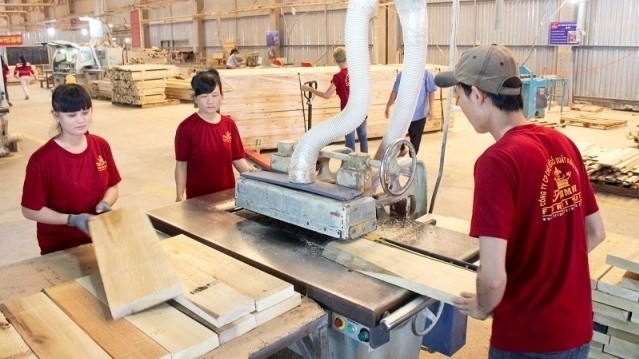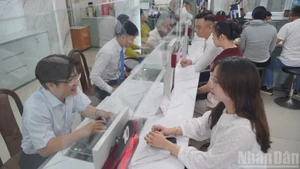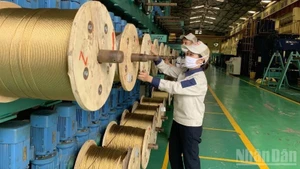Insiders, however, have said that in order to gain the lion’s share of the market and maintain its standing, the sector needs to adopt more effective measures to help Made-in-Vietnam products meet international standards on sustainable development.
Moving ahead
Vietnam has overtaken China as the largest exporter of wood furniture to the US, according to the US-based Furniture Today website.
Despite the trade disruptions, the country shipped over US$7.4 billion worth of furniture to the US last year, up 31 percent compared to 2019. By way of comparison, China’s export value was US$7.33 billion, down 25 percent.
While the gap is relatively small, Vietnam’s position on the world stage reveals how it has grown in importance over the years.
A more dramatic shift has occurred over the past two and a half years, after the US Government imposed tariffs as high as 25 percent on almost all furniture categories exported from China, encouraging many manufacturers to move away from the country.
In a recent online conference with Vietnamese businesses, US distributors said that since the US Government slapped tariffs on Chinese furniture they have sought new suppliers and Vietnam is the leading choice.
Most furniture for bedrooms, kitchens, and offices now comes from Vietnam, they added.
Sales of Vietnamese wooden products have enjoyed robust growth over recent years and the US would import more Vietnamese furniture if not for COVID-19.
According to Tran Lam Son, marketing director and quality manager at the Thien Minh Production Trading Export Import Company Limited, in previous years, international buyers rushed to China in March and April to study their wooden products and place orders. Vietnam, meanwhile, was their second choice.
This year, Vietnamese furniture is more preferable, he said, adding that the country has substantial opportunities in the US, where the housing market is on the rise.
Sustainable development a necessity
Becoming a leading furniture supplier to the US is a major opportunity for Vietnam to promote the production of wooden items, but manufacturers must meet requirements regarding sustainable development and guarantee their timber is of legal origin, experts have said.
Chairman of the Dong Nai Association of Wood and Handicrafts Le Xuan Quan said Vietnamese associations need to take drastic action to raise awareness among local businesses about the significance of following international rules and standards.
The State, meanwhile, should outline mechanisms to control input materials, shadow investments, and identify tax evasion activities, he said, saying that these are crucial for Vietnam’s wood sector to sharpen its focus on market development and affirm its existing position.
Several firms, he pointed out, have faced anti-dumping petitions from the US and the Republic of Korea and been accused of using illegal timber sources.
There was a time when Chinese-made exports masqueraded as Vietnam-made goods, threatening domestic production and legitimate exports, he stressed.
Julie Hundersmarck, a Programme Specialist at the US Forest Service, said that the US market is opening its doors wider to Vietnamese furniture exporters, adding that relevant authorities in the US have deployed various tools to ensure exporters comply with legal timber rules.
Experts also noted that Vietnamese firms need to prevent origin fraud, since the US is a large and strict market in terms of trade fraud and tax evasion.
















